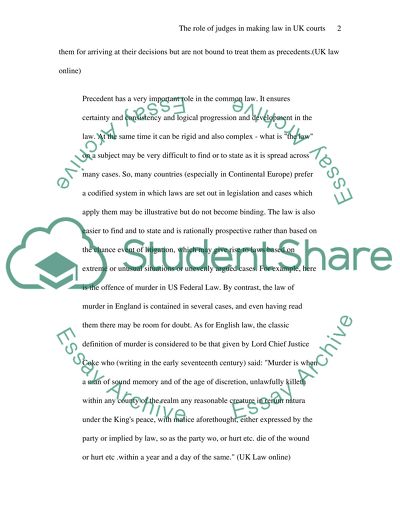Cite this document
(“The role of judges in making law in Uk courts Essay”, n.d.)
Retrieved from https://studentshare.org/miscellaneous/1504270-the-role-of-judges-in-making-law-in-uk-courts
Retrieved from https://studentshare.org/miscellaneous/1504270-the-role-of-judges-in-making-law-in-uk-courts
(The Role of Judges in Making Law in Uk Courts Essay)
https://studentshare.org/miscellaneous/1504270-the-role-of-judges-in-making-law-in-uk-courts.
https://studentshare.org/miscellaneous/1504270-the-role-of-judges-in-making-law-in-uk-courts.
“The Role of Judges in Making Law in Uk Courts Essay”, n.d. https://studentshare.org/miscellaneous/1504270-the-role-of-judges-in-making-law-in-uk-courts.


